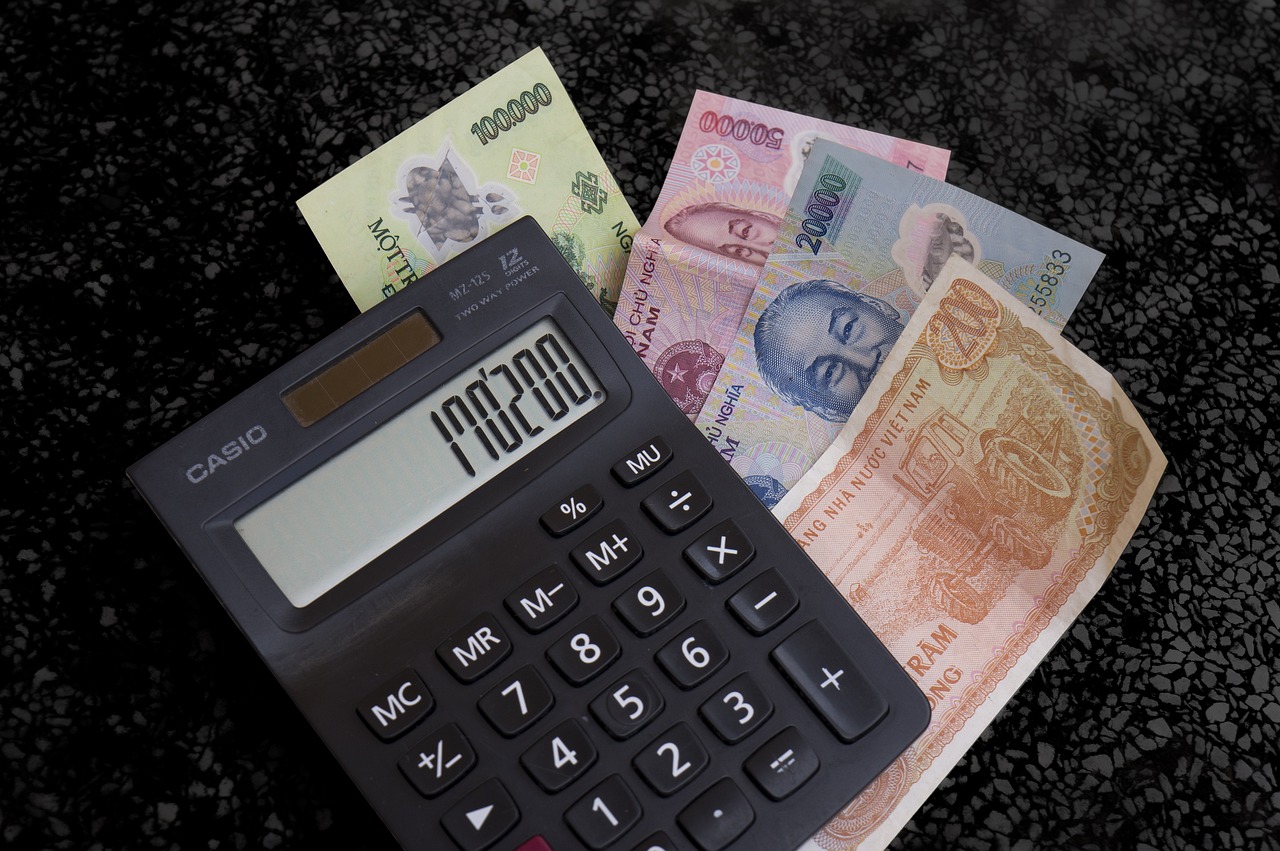Uncovering the Truth: 5 Must-Know Facts About Sending Money Without a Bank Account
GPT_Global - 2024-09-21 19:00:16.0 386
How long does it take to send money without a bank account?
How long does it take to send money without a bank account?
Sending money to loved ones or for business purposes has become easier and faster with the rise of remittance businesses. However, not everyone has access to a bank account or prefers to use traditional banking methods for various reasons. So, how long does it typically take to send money without a bank account?
The answer to this question may vary depending on the remittance service provider you choose. Some providers offer instant transfers, which means your recipient can receive the money within minutes. However, these instant transfers often come with higher fees. If you opt for a standard transfer, it may take 1-3 business days for the money to reach its destination.
Another factor that can affect the speed of your transaction is the destination country. Some countries have stricter regulations and longer processing times, which can delay the transfer. It’s important to do your research and choose a remittance provider that offers fast and reliable services to your desired destination.
Additionally, the method of sending money without a bank account can also impact the time it takes for the transaction to be completed. For instance, if you’re using a mobile wallet or a digital platform, the transfer may be completed faster compared to using a money transfer agent or having the money delivered as cash.
In summary, the time it takes to send money without a bank account can range from a few minutes to a few days, depending on the service provider, destination country, and chosen method of transfer. It’s essential to compare different remittance businesses and their offerings to find the best option that fits your needs and budget.
With the convenience and accessibility of remittance services, sending money without a bank account has become quicker and more efficient than ever before. So, no matter where your loved ones or business partners are located, you can easily transfer money without the hassle of a bank account.

Can I use a prepaid debit card to send money without a bank account?
Sending Money Without a Bank Account: The Convenience of Prepaid Debit Cards
If you don't have a traditional bank account, sending money to your loved ones or paying bills may seem like a daunting task. However, with the rise of technology and the convenience of prepaid debit cards, this process has become much easier.
Prepaid debit cards allow you to load funds onto a card and use it just like a traditional debit or credit card. The difference is that you are using your own money instead of borrowing from a bank. This makes it an ideal option for those who do not have a bank account.
One of the main advantages of using a prepaid debit card for remittance is the speed at which the transaction can be processed. With traditional methods like wire transfers, it can take several business days for the recipient to receive the funds. However, with a prepaid debit card, the money can be transferred instantly, making it a great option for emergencies or last-minute payments.
Additionally, prepaid debit cards often come with low or no fees for sending money, unlike traditional methods where fees can add up quickly. This makes it a more cost-effective option for those who need to send money frequently.
Another benefit of using a prepaid debit card for remittance is the ease of use. Many companies now offer mobile apps where you can manage your card and initiate money transfers directly from your phone. This means you can send money anytime, anywhere, without having to physically visit a remittance center or bank.
In order to use a prepaid debit card for remittance, you will need to load funds onto the card. This can be done through direct deposit, cash reload options, or even by transferring funds from another prepaid card. Some cards also offer the option to add money through a linked bank account, making it a convenient and flexible option.
In conclusion, prepaid debit cards have become a popular choice for sending money without a bank account. With their speed, low fees, and ease of use, it's no wonder why more and more people are turning to this option for their remittance needs. So if you find yourself in a situation where you need to send money without a bank account, consider using a prepaid debit card and experience the convenience for yourself.
Are there any age restrictions for sending money without a bank account?
Remittance businesses are a crucial service for individuals who want to send money to their loved ones across borders. With advancements in technology, sending money has become easier and more convenient. However, certain regulations and age restrictions may apply when it comes to sending money without a bank account.
In most cases, remittance businesses require both the sender and receiver to have a valid identification document. This is to ensure the safety and security of the transaction. As such, minors might face difficulties in sending money without a bank account as they may not have an identification document.
Some countries also have strict regulations when it comes to sending and receiving money without a bank account. For example, in the United States, a person must be at least 18 years old to send money through a remittance service, unless they have a parent or guardian's consent.
Another factor that can affect the age restrictions for sending money without a bank account is the amount of money being sent. Some remittance services may have higher age restrictions for larger sums of money, while allowing minors to send smaller amounts.
The reason behind these age restrictions is to prevent fraud and illegal financial activities. Minors may be more vulnerable and easily manipulated, making them susceptible to money laundering schemes. By implementing age restrictions, remittance businesses can ensure that only legitimate and legal transactions are taking place.
It is important for both the sender and receiver to adhere to the age restrictions set by remittance businesses. Not only does it protect the individuals involved, but it also helps in the fight against financial crimes.
In conclusion, while there may be age restrictions for sending money without a bank account, it is ultimately for the safety and security of the transaction. It is important to always check with the specific remittance business for their age restrictions and to comply with them to avoid any issues or delays in sending money to your loved ones.
Can I cancel a money transfer without a bank account?
Yes, you can cancel a money transfer without a bank account. Many remittance businesses offer the option to cancel a transaction if it has not yet been completed. This is especially useful if you realize you have made an error, such as sending the wrong amount or selecting the wrong recipient.
To cancel a money transfer, you will need to contact the remittance business as soon as possible. Most companies have a customer service hotline or email address that you can use to reach them. You will need to provide your transaction details, such as the transaction number, amount sent, and recipient's name.
Some remittance businesses may require additional information, such as a valid ID or proof of transaction, to verify your identity and ensure the safety of your funds. Once your cancellation request is processed, the remittance business will return the funds to you, usually within a specified time frame. However, you may have to pay a cancellation fee, which varies depending on the company.
It is important to note that the option to cancel a money transfer may not be available for all types of transactions. For example, prepaid cards or direct transfers to a bank account may not be eligible for cancellation. Additionally, if the money has already been picked up or deposited by the recipient, it may not be possible to cancel the transfer.
If you do not have a bank account, you can still use a remittance business to send money. Many companies offer alternative methods for receiving funds, such as cash pick-up at designated locations or mobile wallet transfers. Some remittance businesses also partner with payment centers or retail stores where you can receive your funds without having a bank account.
In conclusion, if you need to cancel a money transfer and do not have a bank account, it is possible to do so through a remittance business. Just make sure to contact them as soon as possible and provide all necessary information to avoid any delays or complications. It is also important to carefully review all transaction details before sending money to ensure accuracy.
What happens if the recipient doesn't have a bank account for the money transfer?
When sending money through a remittance business, it is important to ensure that the recipient has a bank account to receive the funds. However, in some cases, the recipient may not have a bank account, which can present a problem. So what happens if the recipient doesn't have a bank account for the money transfer?
In this situation, there are a few options available depending on the remittance provider and the country in which the money is being sent. One option is to use a mobile wallet service, such as M-Pesa or Tigo Cash. These services allow people without bank accounts to receive and send money through their mobile phones. The sender can simply transfer the funds to the recipient's mobile wallet, and the recipient can then withdraw the cash or use it for purchases.
Another option is to use a prepaid card. Some remittance providers offer prepaid debit cards that can be loaded with the transferred funds. The recipient can then use this card to withdraw money from an ATM or make purchases at stores that accept debit cards.
If the above options are not available, the recipient may be able to collect the funds in cash from a designated agent location. However, this option may incur additional fees and may not be available in all countries.
It is important to note that these alternatives may not be as convenient or cost-effective as a direct bank transfer. Therefore, it is always recommended to have a bank account when receiving money through a remittance service.
About Panda Remit
Panda Remit is committed to providing global users with more convenient, safe, reliable, and affordable online cross-border remittance services。
International remittance services from more than 30 countries/regions around the world are now available: including Japan, Hong Kong, Europe, the United States, Australia, and other markets, and are recognized and trusted by millions of users around the world.
Visit Panda Remit Official Website or Download PandaRemit App, to learn more about remittance info.


